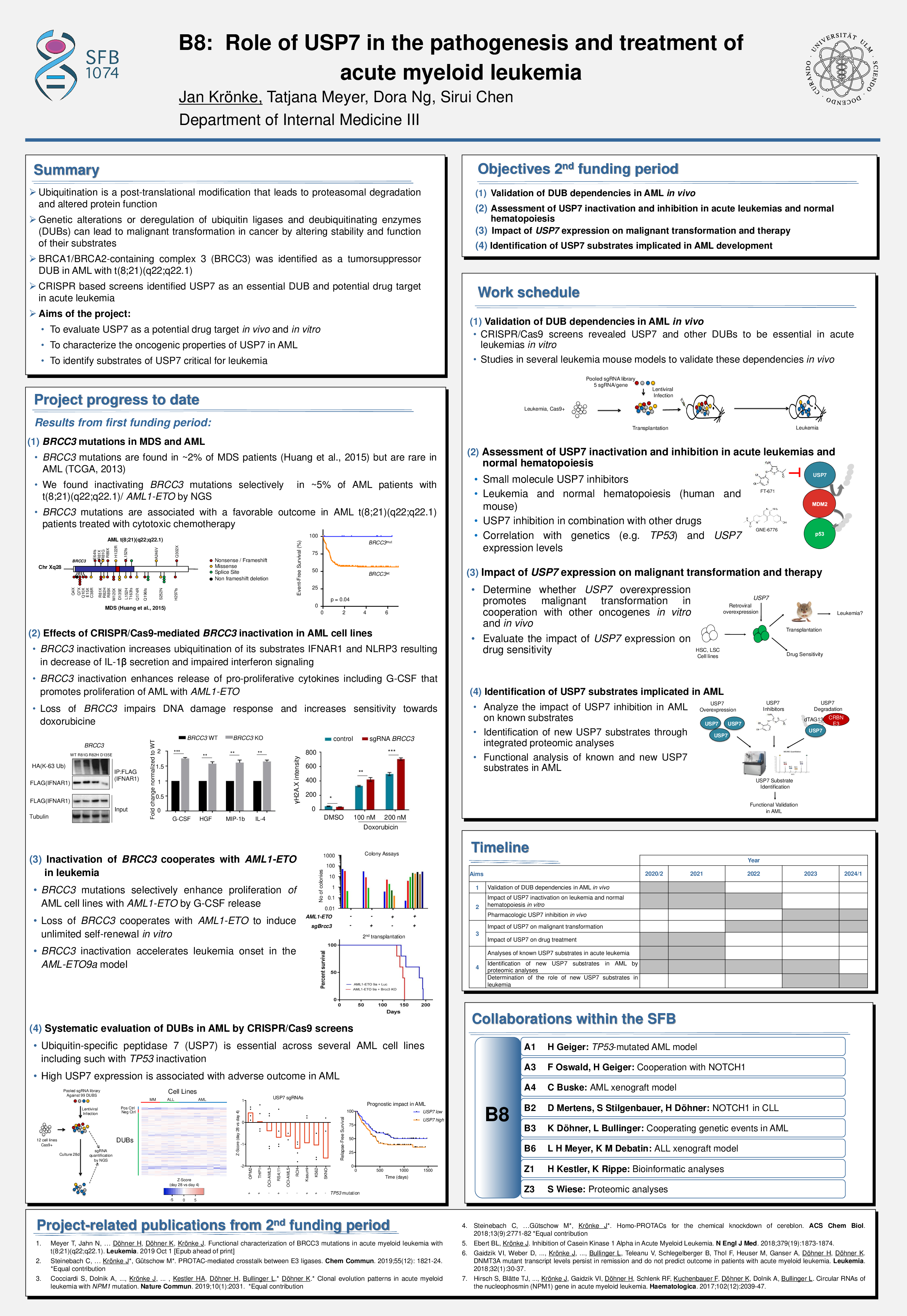B8: The role of deubiquitinating enzyme USP7 in the pathogenesis and treatment of acute myeloid leukemia
Principal Investigator
Prof. Dr. med. Jan Krönke
Department for Hematology, Oncology and Tumorimmunology
Charité - Universitätsmedizin Berlin, Campus Benjamin Franklin
Hindenburgdamm 30
12003 Berlin
Phone: 030-450-613564

Summary
Protein ubiquitination is a post-translational modification that leads to proteasomal degradation or altered function of a protein. After elucidation of the pathogenetic mechanism of mutations in the deubiquitinating enzyme (DUB) BRCC3 in AML in the ongoing funding period, we will now investigate the oncogenic role of DUBs and their exploitation as drug target in leukemia. Specifically, we will investigate the impact of DUB inactivation in acute leukemia in vitro and in vivo by CRISPR/Cas9. We will then focus on the DUB USP7 that we found to be essential for several acute leukemia cell lines including those with TP53 inactivation. Furthermore, AML patients with high USP7 RNA expression have an adverse outcome implying that it enhances aggressiveness of the disease and drug resistance. The impact of USP7 overexpression and genetic inactivation as well as pharmacologic inhibition of USP7 on leukemic cells will be investigated in vitro and in vivo in cell lines and primary mouse and human acute leukemias. By a combination of proteomic, biochemistry and molecular biology analyses, we will then aim at identifying the substrates of USP7 most critical for AML. The results of this project will help to further understand the role of the ubiquitin-proteasome system in the pathogenesis of AML and to identify new therapeutic approaches for cases with high-risk characteristics such as TP53 inactivation.
For a current list of all project-related publications, please go to this page

